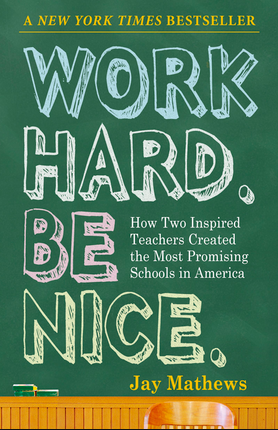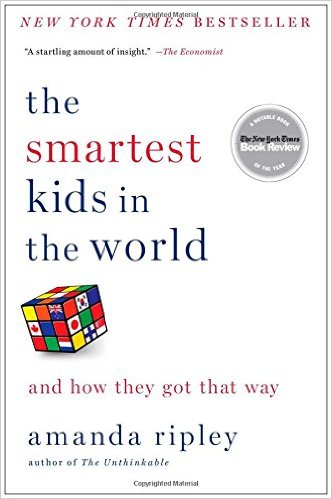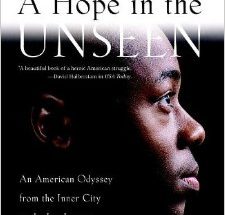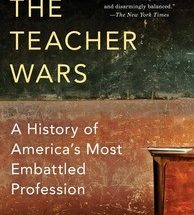 Jay Mathews, an education columnist and blogger for The Washington Post, published “Work Hard, Be Nice: How Two Inspired Teachers Created the Most Promising Schools in America” in 2009 as a history of KIPP Schools. KIPP, which stands for Knowledge is Power Program, began in Houston in 1994 and is now a nationwide charter network.
Jay Mathews, an education columnist and blogger for The Washington Post, published “Work Hard, Be Nice: How Two Inspired Teachers Created the Most Promising Schools in America” in 2009 as a history of KIPP Schools. KIPP, which stands for Knowledge is Power Program, began in Houston in 1994 and is now a nationwide charter network.
The book starts at the very beginning, when future KIPP founders Mike Feinberg and Dave Levin met at Teach for America’s Summer Institute and then road tripped together to Houston to begin their two-year commitments. It walks us through their very rocky beginnings as new teachers, and through their even rockier experience as they began the KIPP program in a single classroom in a Houston elementary school. The program eventually catches hold in Houston, and with some national attention from the media, attracts major funders that work to build KIPP into a national network.
In an emailed Q&A, the author answers a few questions about why and how he wrote this book, and his thoughts on KIPP now that additional studies on the network have been published.
HUSEMAN: How did KIPP schools come to your attention? What was it about that charter network that made you interested in writing this history?
MATHEWS: I heard in 2001 they were opening a school in D.C. while reading a piece by an [Education Writers Association] fellow, if memory serves, who had written about KIPP and its plans to expand. I went to check it out and found a young D.C. teacher, Susan Schaeffler, who was putting the furniture together with her dad in the basement of a [southeast] DC church. She said she would start with a fifth grade, but not call it that — it would be the Class of 2009. Her dad said, “Oh, I get it. That’s the year they will graduate from high school.” “No dad,” she said, somewhat impatient at the trouble she had communicating the big idea about KIPP. “That is the year they will all be going to college.” She also showed me their weekly paycheck —points toward buying stuff at the student store — which included what the paycheck called “Ganas” points for extra effort. “Do you know what ganas means?” she asked. I had written a book about Jaime Escalante*. That was his watchword. I told her I had heard that word before. I decided I would follow this effort for a while. KIPP was doing a lot of things that Jaime did — high expectations, more time for instruction, taking testing seriously and creating a team spirit.
*NOTE: Jaime Escalante is a well-known Bolivian educator who taught calculus in East Los Angeles between 1974 and 1991. He is the subject of the movie “Stand and Deliver.” Matthews book on Escalante was published in 1988 and is titled “Escalante: The Best Teacher in America.”
HUSEMAN: I have heard that charters like KIPP are often resistant to media contact in schools. How did you get around that?
MATTHEWS: KIPP’s policy was the opposite. They welcomed visitors and trained the kids how to greet them. Mike and Dave’s problem had been to get people to take them seriously, so if anyone wanted to come and see they were excited. They had learned that a visit usually sold all doubters. As you see in the book, people were blown away by what they were doing.
HUSEMAN: Have studies of and results from KIPP since this book was published in 2009 changed or reaffirmed your belief that KIPP schools are an effective model for US education?
MATHEWS: Reaffirmed in a big way. The Mathematica study of KIPP done two years ago is the largest study ever done of a charter network and was fortunately paid for by the Atlantic Philanthropies, a foundation with no connection to KIPP. Take a look. It said the results were real, based on the gold standard randomized study method. They compared KIPP kids to kids whose parents also applied to KIPP — so would be the same kind of conscientious parents — but lost the lottery. Also, experiments in increasing learning time are showing good results, as well as sharp focus on teaching technique, as Uncommon’s Doug Lemov has shown, as you know.
HUSEMAN. Some of the early stories of classroom struggles with behavior and school management you wrote about in the book were hard to read, and – I’m sure – hard for the school leaders to talk about. How did you get them to open up about these, and what lessons do you think these stories contain for new teachers and new school leaders?
MATHEWS: Mike and Dave had read my Escalante book. They knew I was positive about what they were doing and would be putting in negative stuff just to make sure this account was completely factual and credible. They knew that I showed everything I write to sources in advance to check for errors, as I had done with the big Post piece on KIPP when helped me get a publisher for the book. And they knew how much I enjoyed their company. It was just like writing about Jaime. They are terrific interviews. Turn on the tape recorder and the book is already written. I think the best thing about the book is that it shows hard this is, good for teachers to know and good for the officials to know who tried to block such a promising idea.



